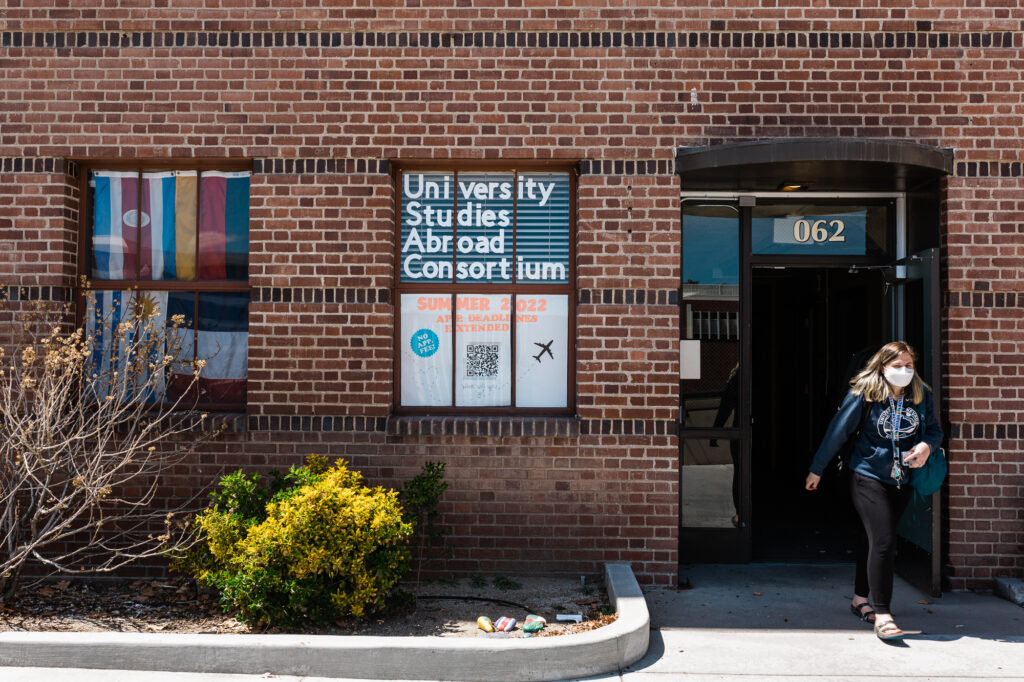
In the aftermath of the COVID-19 pandemic, the University Studies Abroad Consortium has adapted to the new travel regulations.
The health and safety team for USAC has COVID-19 specific protocols set in place, as well as their global staff that has been able to provide full-time and on-site support because of their capability of handling student safety.
Marisa Dylan, the Director of Advancement and Engagement at USAC, explained how USAC had been ready to combat the needs of students during the rapid and intense time during the pandemic.
“The well-being of our students has always been the priority, so our COVID response was an extension of that,” Dylan said. “We continue to monitor the situation at all of our program sites and look to local health professionals, along with the CDC, WHO, and U.S. State department to stay on top of recommendations, even as restrictions have largely been lifted around the world.”
Vaccinations are required for students in study abroad programs and boosters are recommended. Medical and religious exemptions are available. Although, students have to keep in mind that their exemption might not necessarily be accepted.
Students are also required to complete a pre-departure health and safety webinar about COVID-19 prevention. When students are on-site, they are given an orientation instructing them on their host countries guidelines.
Although COVID-19 regulations are not as strict as they have been, there are still differences from studying abroad pre-COVID. Haley McPhail, a current USAC student, illuminated what students undergo while studying abroad.
“The USAC on-site staff have been so incredible. After having a lost debit card, two damaged phones and three different infections, I have discovered I can count on them to help me with anything. The resident director even helped me create an independent study to seek after my interests in botanical medicine in Costa Rica,” McPhail said.
According to McPhail, who also studied through USAC over the summer she has seen mask usage drop, reduced participation and possibly more outcomes related to COVID-19. She was also a member of the first group that allowed overnight trips in the San Ramon program, since prior to COVID-19 regulations.
“The mask mandate has been lifted now so that has helped significantly with our ability to understand Spanish more clearly,” McPhail said.
McPhail said the opportunity for internships are still pending and that if she had the chance she would have wanted an internship in a Costa Rican hospital.
Students were studying abroad when the COVID-19 pandemic spread across the globe, forcing people to go into lock down to avoid spreading the virus further.
Kiera Capurro, a University of Nevada, Reno spring 2022 graduate, was studying in France when COVID-19 regulations went into effect around the world.
“I woke up basically to one of my friends knocking on my door saying that Trump was closing the borders, and I had to leave,” Capurro said. “I called my parents and we booked the next train to Paris and the next flight out. I had six hours to leave my town and get everything together before leaving on the train.”
Capurro stated it was one of the most stressful days of her life, but was grateful that she was with her family in the United States during the quarantine.
The world had to adapt significantly in the last few years, and USAC has continued to adapt with it. USAC has over fifty programs across the globe. These programs allow students to be immersed in different countries, cultures, languages and more.
“Everyone’s motivations are different, so students can speak with advisors and alumni to figure out what program fits,” Dylan said.
On Nov. 15, USAC is celebrating its 40th anniversary at the Knowledge Center from 10 a.m. to 2 p.m. This is an event where students can ask questions about studying abroad and see themselves doing so through virtual reality and green screen technology.
USAC is also giving away forty flight vouchers at $1000 each for studying abroad in 2023.
